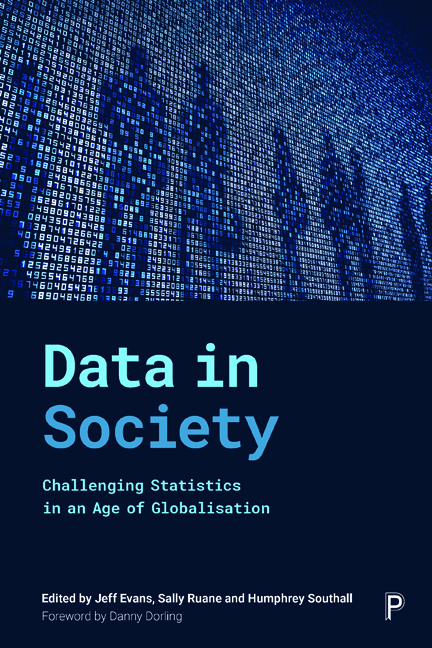Book contents
- Frontmatter
- Contents
- List of figures, tables and boxes
- Notes on contributors
- Foreword
- Preface
- General introduction
- Part I How data are changing
- Part II Counting in a globalised world
- Part III Statistics and the changing role of the state
- Part IV Economic life
- Part V Inequalities in health and wellbeing
- Part VI Advancing social progress through critical statistical literacy
- Epilogue: progressive ways ahead
- Index
Part V - Inequalities in health and wellbeing
Published online by Cambridge University Press: 30 April 2022
- Frontmatter
- Contents
- List of figures, tables and boxes
- Notes on contributors
- Foreword
- Preface
- General introduction
- Part I How data are changing
- Part II Counting in a globalised world
- Part III Statistics and the changing role of the state
- Part IV Economic life
- Part V Inequalities in health and wellbeing
- Part VI Advancing social progress through critical statistical literacy
- Epilogue: progressive ways ahead
- Index
Summary
Distributions of diseases, disorders and death have been a focus of investigation for many centuries and a core area of application of social statistics since the nineteenth century. Far from being purely social constructs, the different components of ‘health’ are nevertheless strongly shaped by the social environments people live in. This is, for example, due to the temporal and geographical distribution of diseases and the respective interventions; and the changing definitions of negative states of ‘health’ which, as a term, focuses on objective indicators and physical conditions. Note also the fact that parity of esteem is today sought for mental health. Relatedly, there is increasing recognition that ‘(mental) health’ is not only defined by the absence of diseases and disorders, but also by differing degrees of positive fulfilment and flourishing, which gives rise to contemporary international perspectives valuing wellbeing and quality of life both as individual and as societal goals.
The four chapters in Part V discuss contemporary aspects of these long-standing topics, all addressing existing and emerging inequalities.
Chapter 19 highlights some of the challenges associated with the framing and measurement of unjust and preventable differences in health. Some of these, the author points out, are statistical challenges, such as the need for sufficiently large samples to capture the experiences of small groups of interest in the population, and the need to appreciate the strengths and limitations of different ways of measuring outcomes between groups. Other challenges relate to how the measures and language used can affect the communities or groups of people whose health is being described, or how the framing of analyses can shape the responses proposed to address health inequalities. The chapter presents selected statistics illustrating inequalities in physical health outcomes and risks at three broad life stages: infancy and childhood, adolescence, and middle to later life. The author argues that our picture is limited by the paucity of data relating to other important forms of health inequality since data based on gender identity, sexual orientation, ethnicity and migration experience are notably absent from many statistics, on their own or in combination with socioeconomic status indicators.
Chapter 20 explores approaches to measuring wellbeing given the limitations of Gross Domestic (or National) Product and other economic approaches.
- Type
- Chapter
- Information
- Data in SocietyChallenging Statistics in an Age of Globalisation, pp. 247 - 250Publisher: Bristol University PressPrint publication year: 2019



